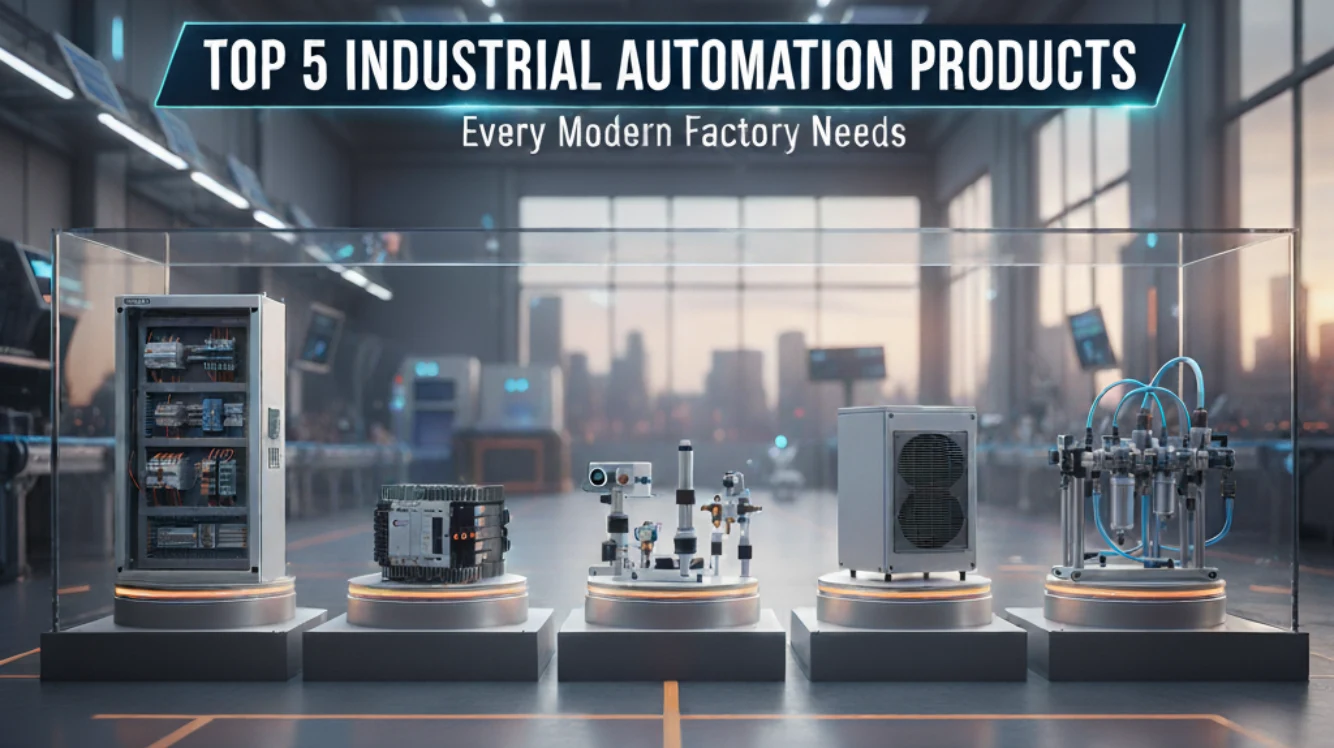
Industrial automation has become essential in today's fast-paced manufacturing world. In order to increase productivity, decrease downtime, and guarantee worker safety, modern factories are depending on advanced automation products.
Automation tools, such as intelligent cooling systems and precision control systems, are changing how industries function.
Companies like FANUC, a leader in robotics, CNC systems, and industrial automation solutions, are playing an essential role in meeting the specific requirements of many industries by offering dependable, high-performing fanuc products.
We will discuss here the top industrial automation products that every modern factory needs to know, many of which are essential for operating the different types of robot arms used in automated manufacturing.
So, you must read the complete article to know about these products. and their uses in the automation process.
Let’s start.
Industrial automation products are systems and devices used to monitor, control, and optimize industrial processes with minimal human interaction.
They include supporting equipment such as cabinet coolers, pneumatic devices, and machine guarding systems, as well as hardware such as controllers, actuators, and sensors.
These machines can be equipped with smart software that allows real-time precision, speed and predictive decision-making. Factories can attain enhanced efficiency, uniform product quality, and less operational risk by introducing smart hardware along with digital technologies, which highlights key benefits of automation in manufacturing.
Electrical control systems form the basis of any automated factory system. These systems control processes, operate machines, and ensure safety compliance.
With compliance to international safety standards, a perfectly designed control system ensures seamless interaction among all equipment.
Specialized electrical systems that operate to their specifications are commonly required in factories. Firms like FANUC provide specialized automation solutions that comply with international regulatory requirements, ensuring reliability and employee safety.
Automation's brain is a PLC. These small but mighty controllers carry out pre-programmed commands to oversee operations like line coordination, quality assurance, and machine operation.
PLCs are well-liked because of their:
PLCs are essential for enabling automation solutions that enhance efficiency and scalability in Indian factories engaged in the automation industry.
No automation system can function without sensors and actuators.
When used together, these automation products allow manufacturers to quickly take corrective measures and see conditions in real time. For example, actuators may initiate a cooling process prior to damage occurring if a sensor detects overheating.
Since electrical enclosures are extremely sensitive to heat, equipment failure may result from high temperatures. Cabinet coolers are therefore an essential component in contemporary manufacturers.
Compressed air cabinet coolers are being used by numerous companies in place of conventional air conditioning systems. These are low-maintenance, energy-efficient, and able to function even in challenging conditions.
They prolong the life of automation systems and avoid expensive downtime by keeping electrical panels cool.
Also Read: 10 Key Components of Industrial Automation Control Systems
Pneumatic Products
A key component of factory automation is pneumatics. Pneumatic devices, which run on compressed air, are effective, safe, and adaptable. Typical uses consist of:
Pneumatic solutions are included into larger automation systems by manufacturers such as FANUC, guaranteeing industries attain optimal performance and sustainability.
In any industrial setting, worker safety comes first. While preserving efficient operations, machine guarding and safety solutions shield operators from dangers.
Some popular solutions include:
Physical barriers: Keep moving parts away from direct contact.
Use safety sensors and light curtains: To create invisible safety zones that can recognize people.
Emergency stop devices: Give operators the ability to quickly stop equipment in the event of an emergency.
These items guarantee compliance and lower workplace accidents because they are designed in accordance with safety standards like AS4024. Purchasing the right safety automation products reduces liability and downtime while also protecting employees.
After gas, water, and electricity, compressed air is frequently referred to as the "fourth utility" in production. It is essential to the operation of automation equipment in many different sectors.
Compressed air has several key uses in automation.
Energy-efficient compressed air systems are crucial for sustainability since they use less electricity. Compressed air technology, which offers both performance and energy savings, is frequently advantageous to factories that use FANUC automation solutions.
Also Read: What is EDM Machining and How FANUC ROBOMACHINE Enhances Wire EDM Performance?
When choosing automation products, integration and customization are essential because every production has different needs.
A few things to think about are
Long-term operational stability and the highest return on investment are guaranteed when automation solutions are customized.
The automation industry is evolving rapidly, and modern factories are investing in the right industrial automation product to keep up.
Every element is essential to establishing productive, secure, and sustainable production environments, from PLCs and sensors to pneumatic tools and safety systems.
Manufacturers may obtain top-notch factory automation solutions that are customized to meet their demands by collaborating with reliable companies like FANUC.
In addition to enhancing productivity, the appropriate automation tools help businesses prepare for the future in a market that is becoming more and more competitive.
In summary, wise investments in the appropriate automation products today are essential to the success of factories of the future.
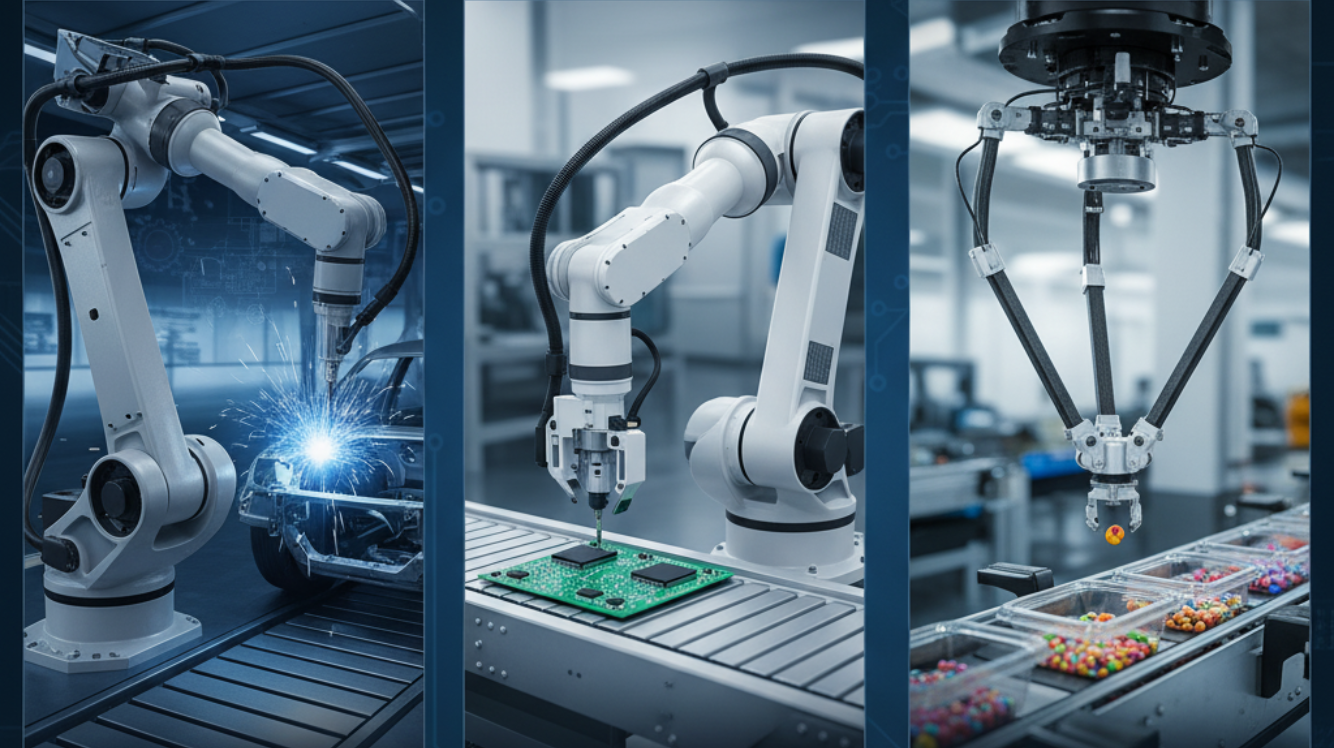
Discover various types of robotic arms used in industries like automotive, electronics, and packaging. Compare articulated, SCARA, delta, and cobot designs.
Know More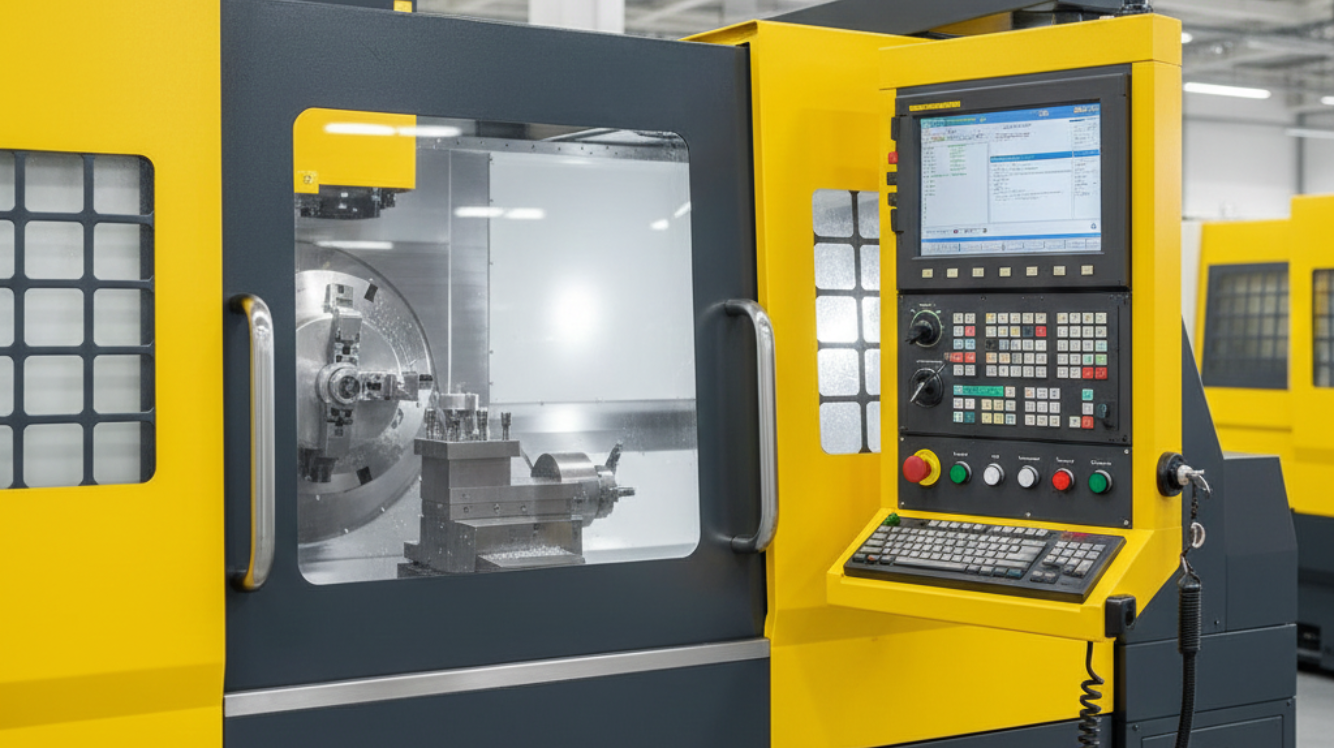
Understand the CNC and VMC machine difference, their functions, applications, and which one suits your machining needs. A clear and simple comparison.
Know More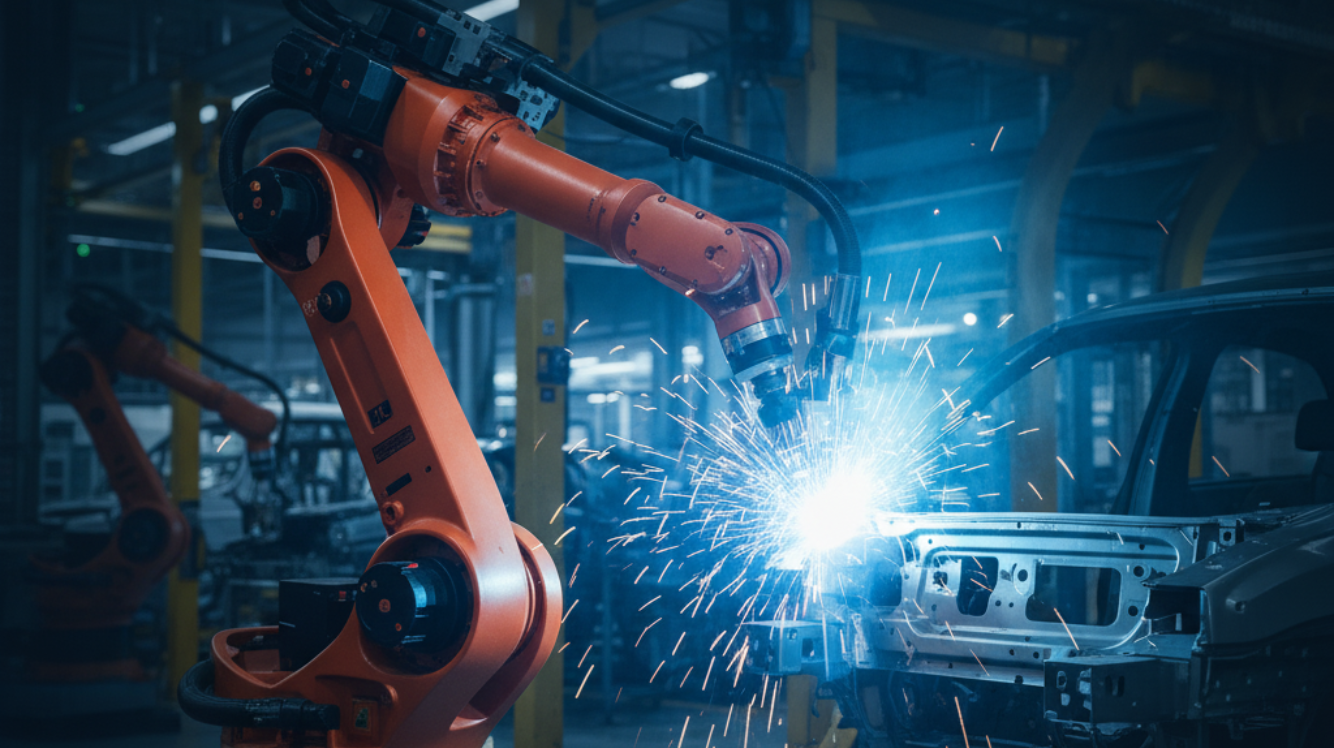
Understand the main types of industrial robots — articulated, SCARA, delta, and cobots. Learn their applications, advantages, and impact on modern manufacturing
Know More
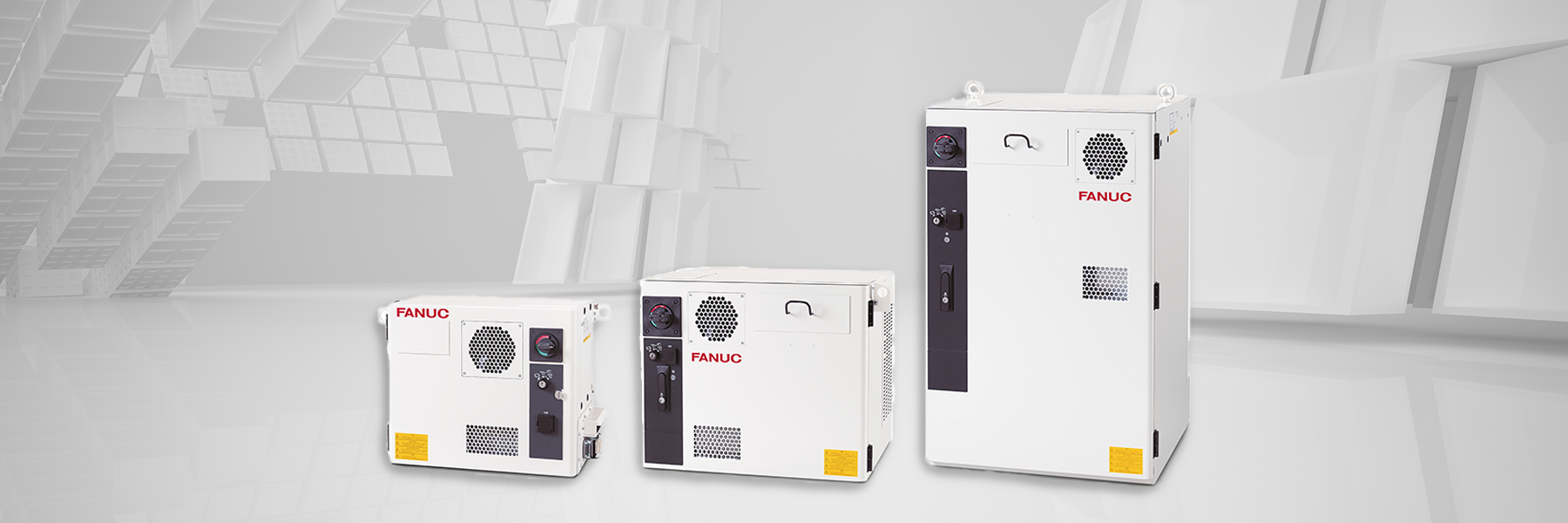
.png)